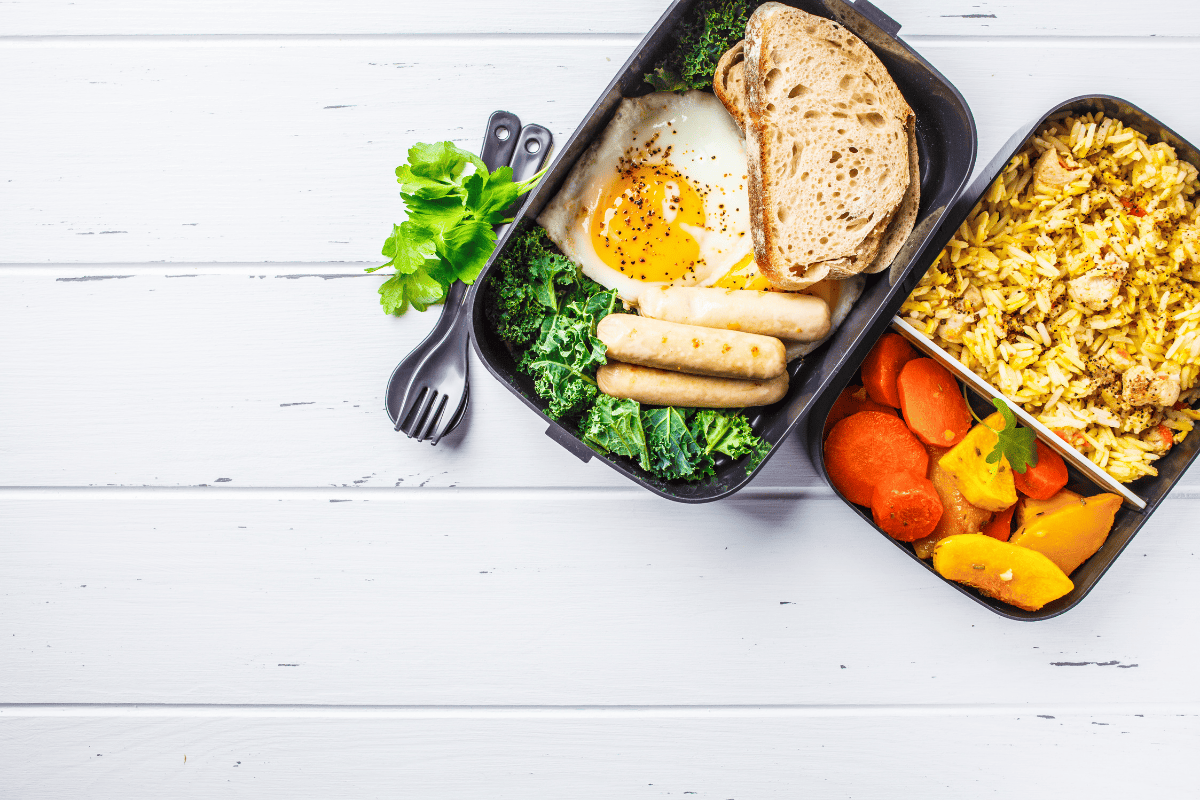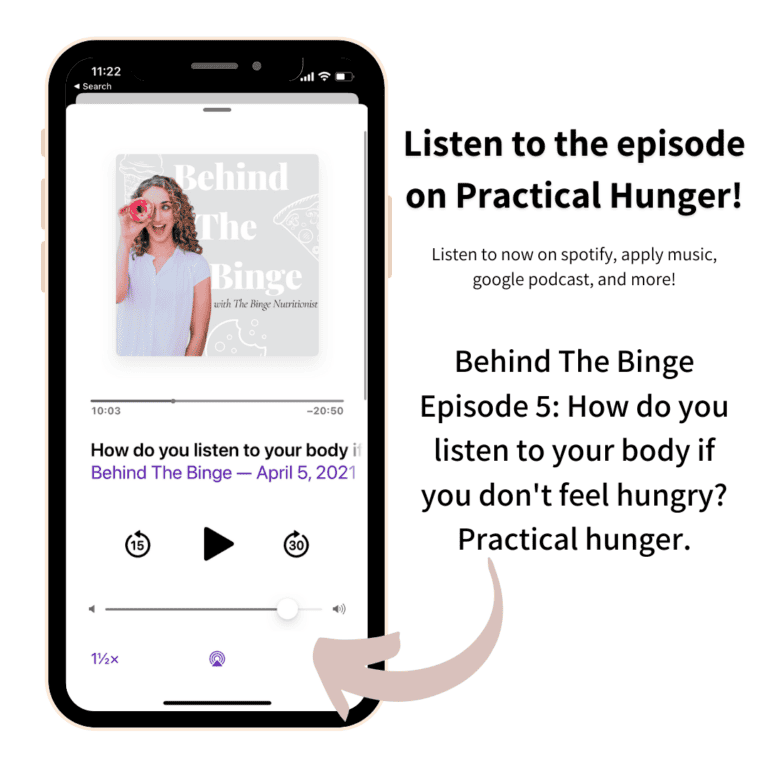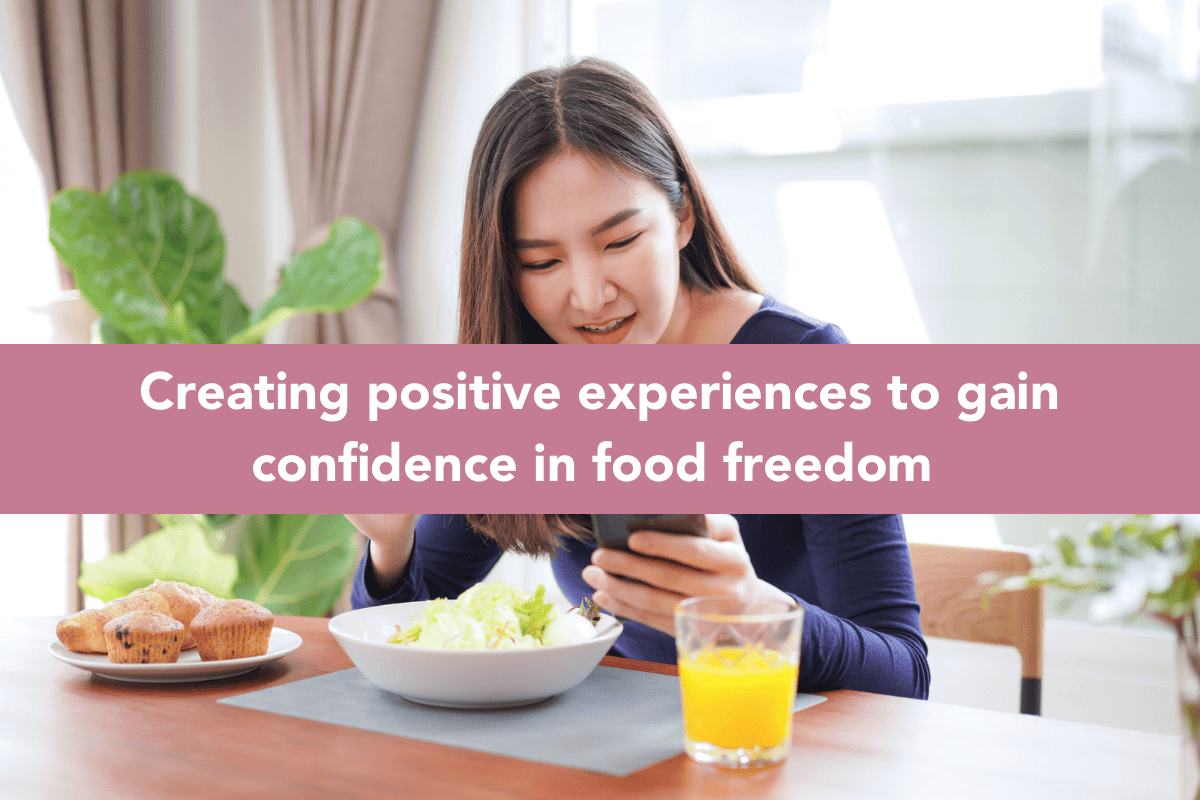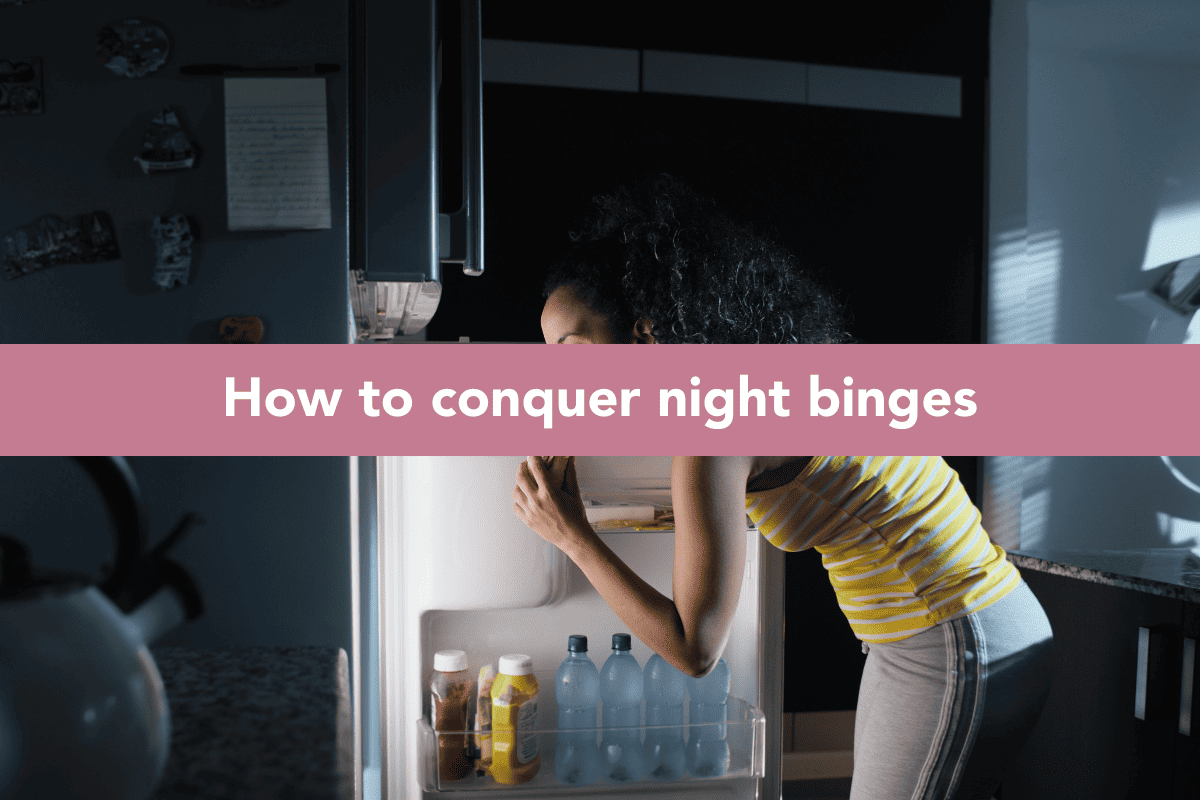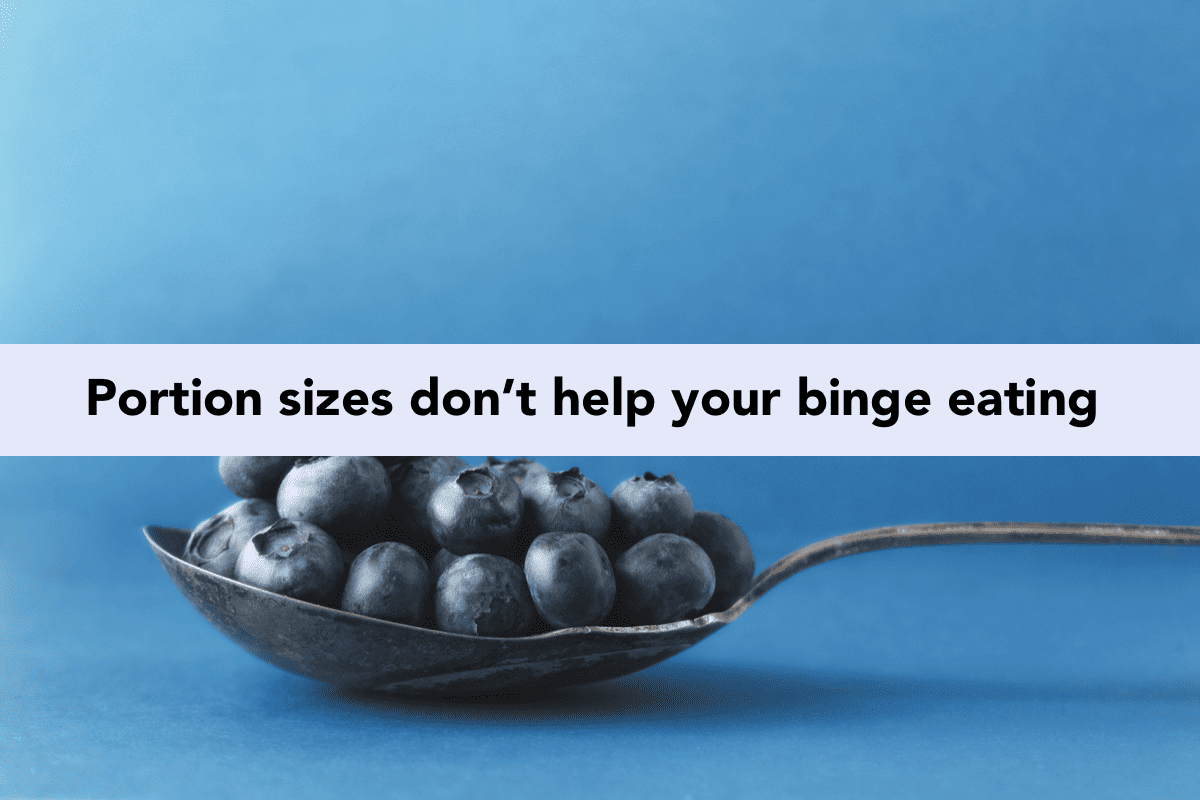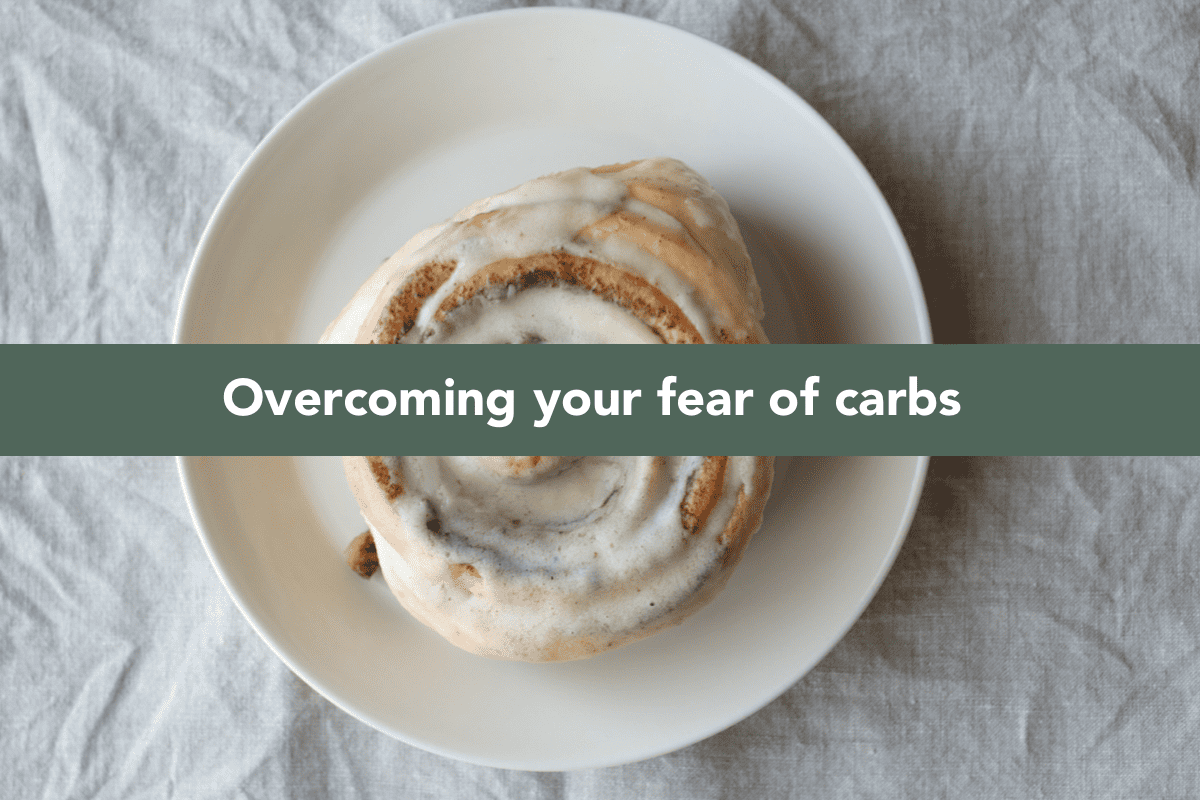For my clients who are parents, students, or constantly on-the-go, meal planning is a really helpful tool to save time. But I often get asked, “is meal planning part of intuitive eating since it’s not an intuitive thing to do?”
The answer is yes. Meal planning actually IS intuitive and can be an integral part of listening to your body. But it is not for everyone. Some people feel triggered by meal planning because it reminds them of feeling restrictive like they did when they were following a diet. However, with flexibility and a practical approach, meal planning may be more helpful than not when it comes to listening to your body.
In a recent podcast episode, I talked about utilizing practical hunger. There is a misconception that intuitive eating is simply the “hunger/fullness” diet; eat when you’re hungry, stop when you’re full. BUT sometimes we have to be more practical. Practical hunger is when we listen to cues outside of our hunger to decide when we need to eat. An example of this would be to remember that eating consistently keeps your energy levels up, or when you skip a meal you’re more likely to binge. Our lives and routines don’t always allow us to be totally in tune with our hunger at every moment, so we may eat at a certain time to avoid getting too hungry or simply because that’s when we have our lunch break.
Meal planning is part of practical hunger. Being prepared allows you to be intuitive, especially in those moments of extreme hunger and you need to grab something convenient. Meal planning is a useful tool if you forget to eat due to a busy week (I know it is helpful for me during busy work weeks!).
With meal planning in this respect, it’s less about calories, macros, or portions and more about creating convenience to have what you want when you want, in order to best honor your body.
If you’re thinking about meal planning, but wondering how to approach it without falling into the diet mentality, here are some tips to get started:
- Be flexible
- Think of satisfaction
- Be realistic
I know you’ve seen those portioned meal plan containers that you try to squeeze your meals into to fit some sort of “standard.” This is not flexible. When I say be flexible, this means leave enough food for you to gauge how hungry you are that day in that moment. When we use these portioning containers, we are expecting our appetite to be the same every single day. That isn’t realistic. I am a bigger fan of preparing meals in large containers, and portioning them out for your day as needed, leaving room and permission to eat more if you find you need to. Pack snacks, and don’t be afraid to change up what you’re eating if you’re just not feeling it at that moment. The food you choose needs to provide you with satisfaction so that you’re not left bingeing later on. Meal planning is about convenience, not predicting your every need in every moment, every day.
I also want to encourage you to think about mental satisfaction with planning your meals for the week, not only what will fill you up. What types of flavors do you tend to gravitate toward? Do you like your food hot or cold? Do you want separate options or everything shoved into a burrito? Do you want to incorporate fun foods throughout the week to keep things interesting and normalize having them in your life? Think about what will be filling enough to get you through your day but also satisfy your taste buds and preferences.
If you’re someone who gets bored with your meals easily, be realistic. It might be best to pick three to four main meals to alternate between for your week instead of trying to eat the same thing every single day. I mean for me, I don’t want the same things every week but it is more realistic for me to not make a whole new meal every single day. I love to pick out three to four main dinners for the week, and make enough for leftovers to have for lunch the next day. I’ve figured out that this works well for me to switch things up enough to stay exciting and satisfying, but also not feel like I need to be cooking new recipes every single day. If you notice eating the same meals daily makes you more likely to binge, you might be getting bored and need to switch up what you’re eating and see if that helps with satisfaction!
All in all, some weeks we just don’t have the time, energy, or money to create exciting home-cooked prepared meals, so be realistic and flexible with yourself. It’s okay to grab a frozen meal or fast food when you need and continue to listen to your body.
Reviewed and Edited by Kaitlyn Allen MS, MEd, MS, RD

